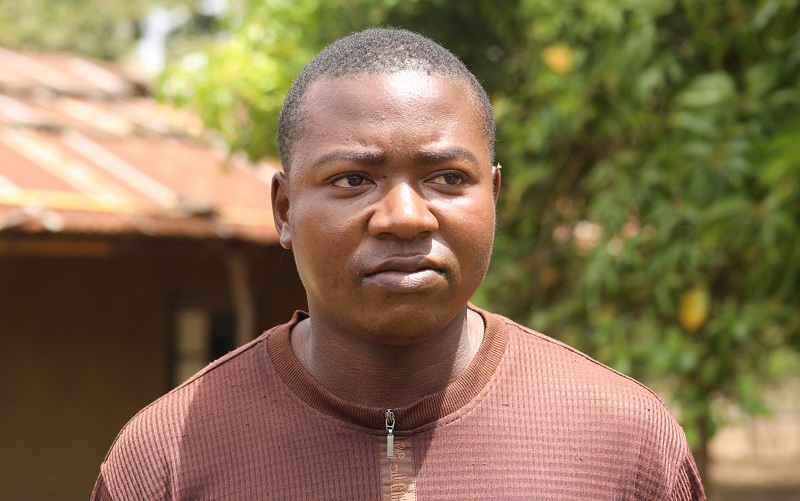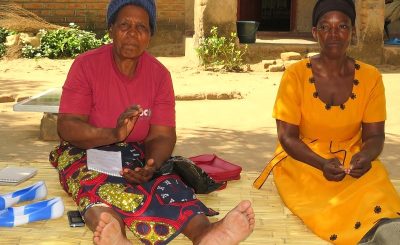Chisomo Banda, 26, of Traditional Authority Kalumbu in Lilongwe District started smoking cannabis sativa, locally known as Chamba and drinking excessively while 16.
Chisomo narrates that he found himself in this situation after being enticed by friends when he was a boarder at William Murry Boys Secondary School at Nkhoma in Lilongwe where he was later expelled while in Form Two.
“It was in the morning so it was easy for people to notice that I was drunk so someone reported me to the head teacher who expelled me from the school,” he recalls.
“After smoking marijuana my mind was disorganized, many times I felt I was not human. Even my parents did not matter to me. Some people say when you smoke weed you feel good but to me that was not the case.”
Chisomo’s mother, Fyness Mwansambo, narrates that after being expelled from William Murray, Chisomo enrolled at a certain private secondary school in Nathenje, Lilongwe.
She says while at the new school, Chisomo continued smoking marijuana and drinking heavily which led to another dismissal.
“The environment at the second school was not good because many boys from there smoke cannabis,” Mwansambo says.”
She adds that when Chisomo was back home for the second time, his behaviour became worse.
“He was drinking excessively, smoking cannabis and he often sprayed oil on his body thereby turning his body into black monster. You could not recognize him,” she says.
Mwamsambo says later, Chisomo started showing signs of a mental health problem.
“He used to go away from home early in the morning to loiter around and coming back late in the night. He used to sell his clothes. He even took my five expensive blankets and sold them,” she says.
Mwansambo says luckily in August 2018, officials from Youth Net and Counselling (YONECO) traced Chisomo and encouraged them to seek medical care at the hospital.
She says it was after getting medical care and counselling at St John of God Hospital in Lilongwe that Chisomo’s life started changing for the better. Mwansambo adds that Chisomo has now gone back to school.
“When we went to St John of God Hospital we were received well and he was given drugs and counselling. After being counselled he told me that he has stopped smoking and drinking heavily so we also went back to the hospital to get another round of treatment.
“Currently Chisomo is fine and now I sleep peacefully knowing that everything is fine and he is now back to school at Mtenthera Community Day Secondary School.”
Chisomo’s story is similar to that of Sankhani Kamanga, 22, of Khwechu village in Traditional Authority Kafuzira in Nkhotakota district who suffered from mental health issues due to drug abuse.
Kamanga narrates that he developed mental health issues unexpectedly in 2018 due to smoking cannabis and excessive drinking.
“I became mentally ill unexpectedly when I was already married and fathering one child,” says Kamanga who is married and has two children.
Kamanga who later received medical care and counselling through a Comic Relief funded mental health care project which is being implemented by YONECO in partnership with Zomba Mental Hospital and Tackle Africa, is now in stable condition.
He runs a tailoring shop and is also a member of a Village Savings and Loans (VSL) group.
“This business is helping me a lot because I am able to buy soap, food and also cater for other basic needs for my family. On daily basis I make not less than K1, 000 from the tailoring shop and I save some,” he says.
“I also took some money from the Village Savings and Loans group which I have invested it into farming during the 2019/2020 season. I also part of the money to buy pigeons which have so far multiplied.”
According to the World Health Organization (WHO), one in every four people globally suffers from mental disabilities.
Malawi is yet to conduct its own national study to ascertain the severity of mental health disabilities in the country.
However, a baseline study commissioned by YONECO in Traditional Authorities Mlumbe in Zomba, Kalumbu in Lilongwe and Kafuzira in Nkhotakota indicates that drug and substance abuse is the common cause of mental health issues in all the three areas.
Similarly, Zomba Mental Hospital Psychiatric Clinician Harry Kawiya says a recent study done in Zomba indicates that 20 out of 100 patients who visit health facilities in the district are diagnosed with common mental conditions.
Nkhotakota Mental Health Clinical Officer Khumbo Nyirenda says mental health is a huge problem in the district due to substance abuse especially cannabis.
He says Nkhotakota District Hospital handles between 600 and 700 people with mental health issues every month with 15 new mental health cases also registered each month.
Nyirenda says more people with mental disabilities are now accessing treatment and counselling at the hospital following increased awareness through the mental health care project.
Health Surveillance Assistant (HSA) at Kasitu Health Center in Nkhotakota district, Jonathan Chirwa also echoes Nyirenda’s sentiments by adding that many young people in the area are unemployed thereby indulging themselves in substance abuse.
YONECO Executive Director MacBain Mkandawire says despite registering remarkable progress in the districts of Zomba, Lilongwe and Nkhotakota where the mental healthcare project is being implemented, Malawi has a long way to go in dealing with mental health issues such as prevention of substance abuse and provision of care.
Mkandawire is therefore calling for intensification of counselling in schools in order to address cases of drug abuse among students.
Mkandawire also suggests that life skills education in schools should be strengthened in order to move away from the current focus on passing examinations.
In agreement with Mkandawire’s suggestions, Kawiya says such a move can go a long way in dealing with high cases of mental health disorders in the country.
On 18 August 2017, the Malawi Government launched the National Alcohol Policy to among others, deter people from indulging in heavy drinking.
However, until now government and other partners have not done much to implement actions that will reduce harmful use of alcohol in the country such as enforcing restrictions on the physical availability of retailed alcohol.
Mkandawire is of the view that enforcement of alcohol laws and policies can go a long way in preventing cases of substance abuse among the youth in the country.
Unless holistic approaches are taken by the government and other partners in addressing high unemployment among youths, strengthening prevention services on drug abuse and reinforcing support for drug addicts, it is hard for Malawi to break the vicious circle of mental health issues.





